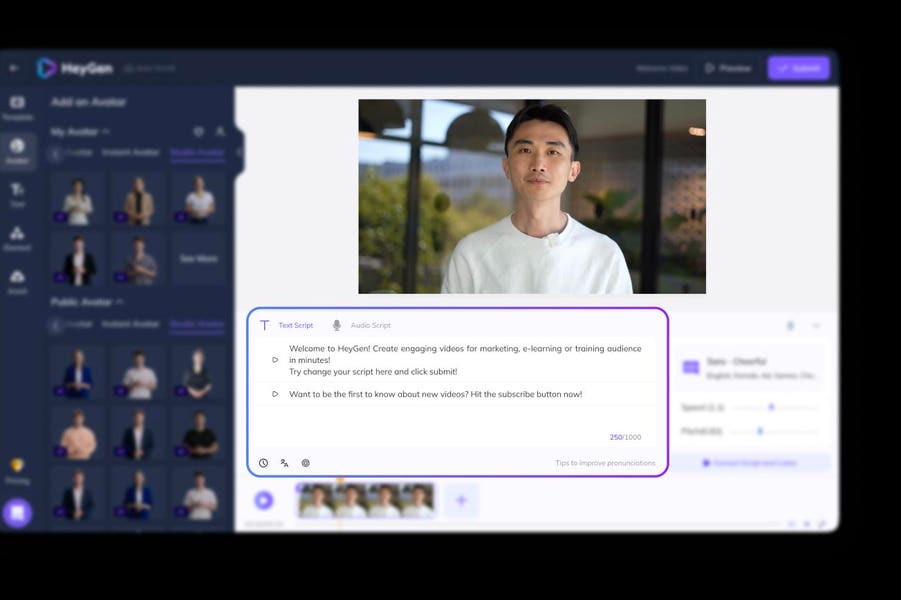Former Snap software engineer Joshua Xu anticipates a significant advancement in AI-generated video technology, drawing parallels to the transformative early stages of Snapchat or Instagram in the mobile photography realm.
Joshua Xu, the CEO of HeyGen, a company specializing in AI-driven video production, emphasized the impressive growth trajectory of the company. HeyGen witnessed substantial progress, reaching \(1 million in annual recurring revenue in March, surging to \)10 million in August, and currently peaking at $18 million. Xu envisions AI as the new standard in content creation, akin to Snapchat’s pioneering camera-centric approach.
Recently, HeyGen secured \(5.6 million in fresh venture capital funding, with Sarah Guo’s Conviction Partners leading the investment round, valuing the Los Angeles-based company at \)75 million. This funding round marked a strategic shift for HeyGen, aiming to distance itself from its Chinese origins, with Sarah Guo assuming the board position previously held by HongShan.
HeyGen introduced a novel product designed to streamline the process of creating personalized AI avatars for videos. Previously, generating custom photo-realistic avatars required professional photography and extensive time investment. However, the latest product can now generate AI avatars using smartphone footage within just five minutes, a significant advancement attributed to HeyGen’s improved AI model architecture.
Co-founded by Joshua Xu and Wayne Liang, who crossed paths during their academic pursuits at Tongji University and later at Carnegie Mellon University, HeyGen has navigated challenges posed by the dynamic U.S.-China tech landscape. Despite initial backing from Chinese firms like Sequoia China and ZhenFund, HeyGen shifted its focus to Western markets due to geopolitical tensions.
HeyGen stands out in the competitive arena by leveraging “diffusion” generative AI models for video production. While many AI-for-video startups target creative individuals and consumers, HeyGen caters to the corporate sector’s demand for marketing, training, and instructional videos. The company aims to broaden its audience to include content creators on platforms such as YouTube and TikTok through its latest product offerings.
Prioritizing revenue stability, HeyGen aims to bolster its sales initiatives by targeting enterprise contracts. By offering unique features like avatar personalization, HeyGen strives to establish a distinctive market presence, even amidst competition from established entities like Synthesia.
With significant untapped opportunities across various market segments, HeyGen remains optimistic about the future of AI-generated video content. Sarah Guo aptly notes that the current adoption rate of this technology stands at a mere 0.1%, indicating substantial room for growth and innovation in the ever-evolving landscape of AI-driven content creation.






